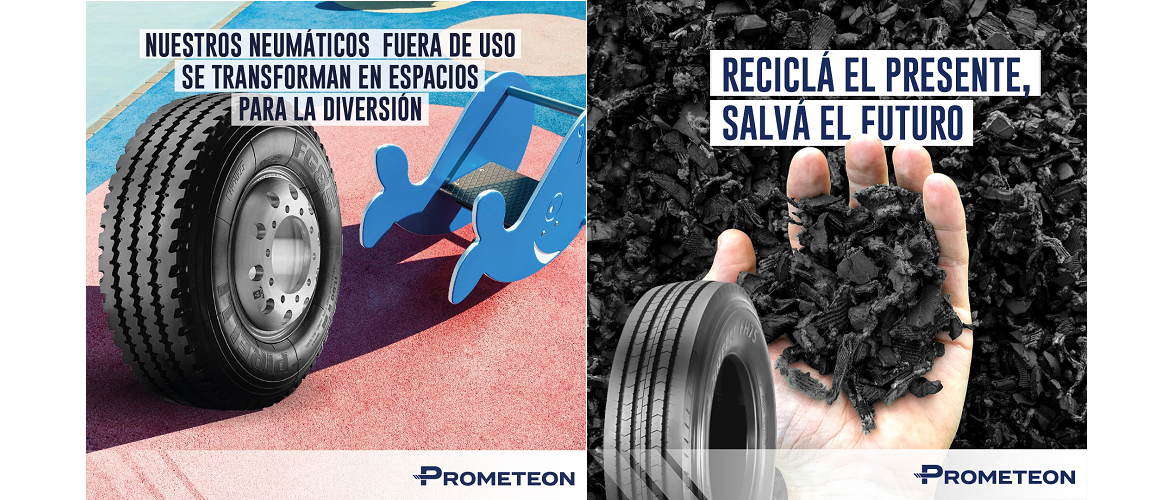Prometeon has a solution for ELT in Argentina.
In an article in Argentina’s Clarin Economica, Hernán Di Leo, ELT manager at Prometeon says; “I have been responsible for recycling the tyres we sell for six months. I thought it would be a task, but I got very involved and discovered a fantastic activity”
With around 120 points of sale in Argentina and over 1,100 employees Prometeon is the largest distribution network in the country.
“The reuse of tyres is a key to the sustainability of the business, although it must be made clear that the process only accepts high-quality tyres,” says Di Leo. And he clarifies that it is estimated that “a tyre requires at least 250 years to biodegrade.”
There are other intermediate options, such as tyre reconstruction through retreading procedures. However, despite retreading, the useful life of a tyre comes to an end. For this reason, Prometeon launched its ELT Programme, which involves recycling tyre components in new uses, ranging from street furniture for children’s games, synthetic grass for soccer fields, to energy sources for companies in the cement industry.
“The tyre is a derivative of oil and to convert it into something else you have to break it down. Then it can be something else,” explained Di Leo.
“Currently, the Prometeon ELT programme has already delivered just over 600 tons of products to companies such as Holcim, Worms and Regomax who, each of their fields, take advantage of the benefits of the ELT programme.” He further clarifies; “all this is “free”. Regomax not only makes granules for synthetic grass in the country but also exports it. Holcim uses the powder as an excellent fuel for its ovens and unfortunately, it is the only company in Argentina that does and only has two ovens”.
The project may seem very advanced but, in reality, it exhibits the backwardness of Argentine legislation. “In other countries in the South America there are Extended Responsibility Laws, which in Argentina are only half -hearted. EPR law means that each company must commit to the final destination of each tyre it produces. They exist in nations such as Brazil, Ecuador and Uruguay, among others.
“What we did is anticipate a measure that we believe is fair and necessary, and we did it with the participation of our entire network of distributors. We look for technological partners for the final destination of our products and the truth is that we are very satisfied with what we have achieved. A commercial tyre weighs, on average, about 55 kilos, and it is overwhelming to think of the impact that millions of these products can have on the ecosystem.”


















